The secret of happiness is to admire without desiring. And that is not happiness.
F. H. BRADLEYI will begin with the self-styled “Christian” party, who profess to base their morality on the New Testament. But whether it is really more Christian to follow or to ignore the teachings of the Gospels I shall not discuss.
More F. H. Bradley Quotes
-





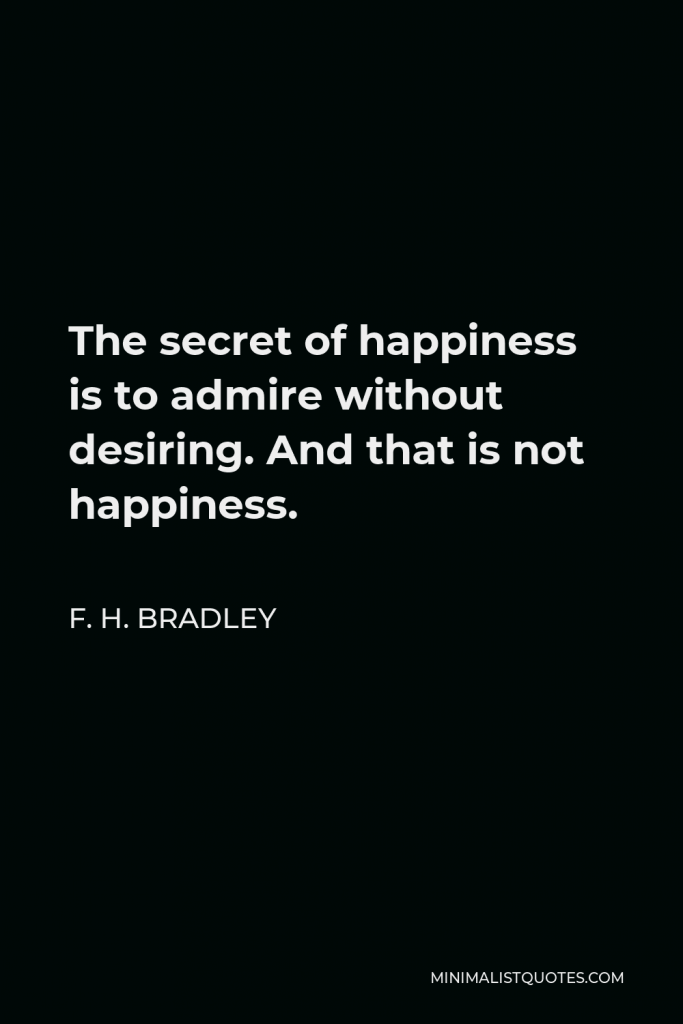

-





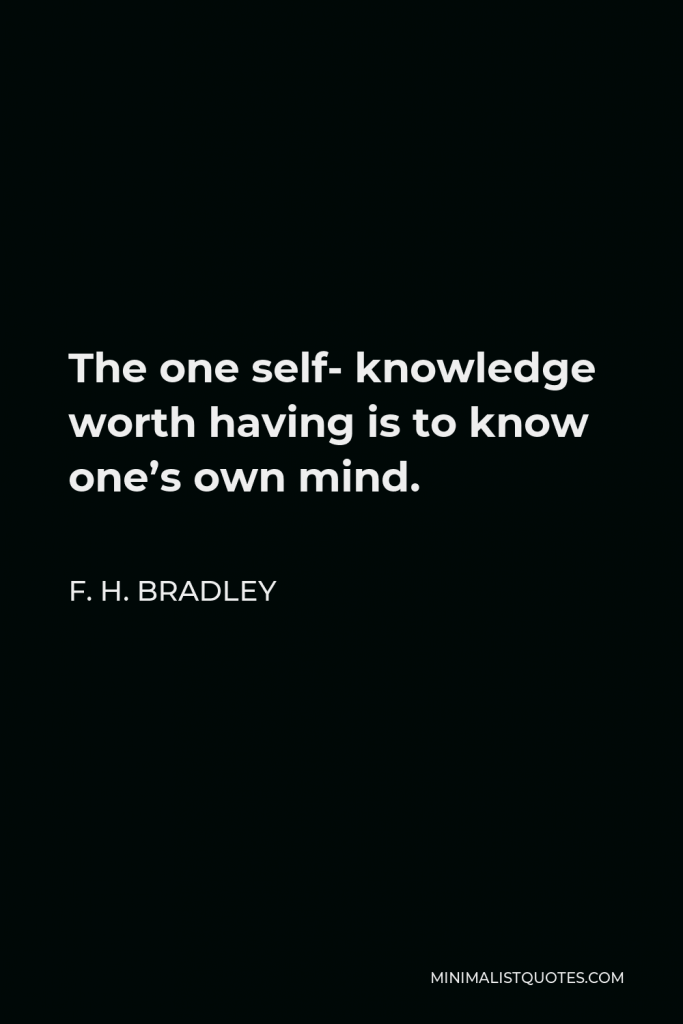

The one self- knowledge worth having is to know one’s own mind.
F. H. BRADLEY -





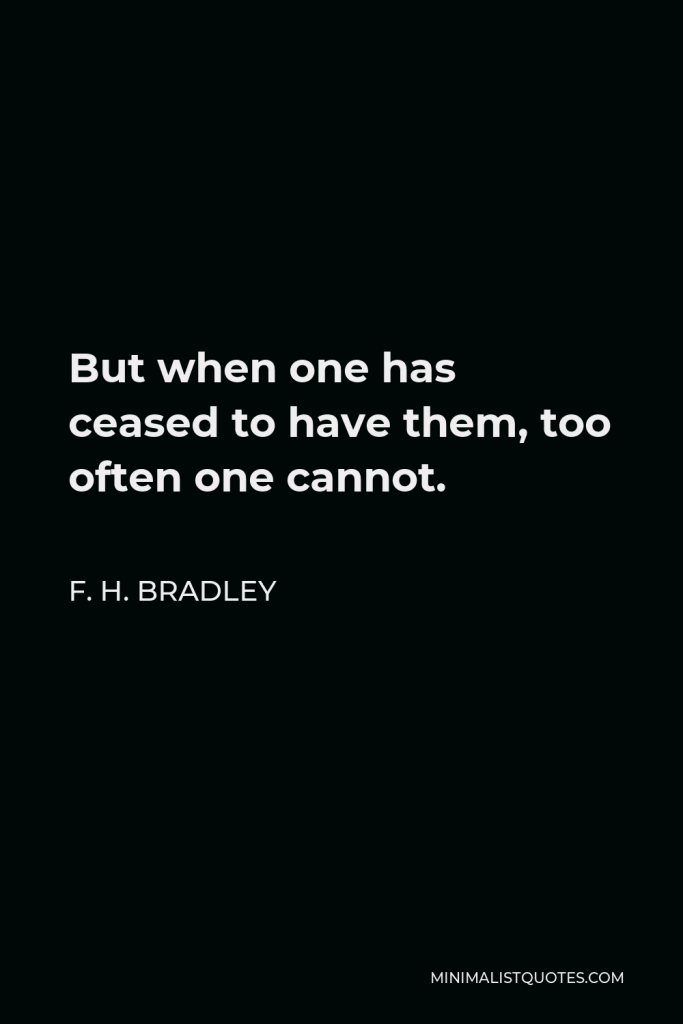

But when one has ceased to have them, too often one cannot.
F. H. BRADLEY -





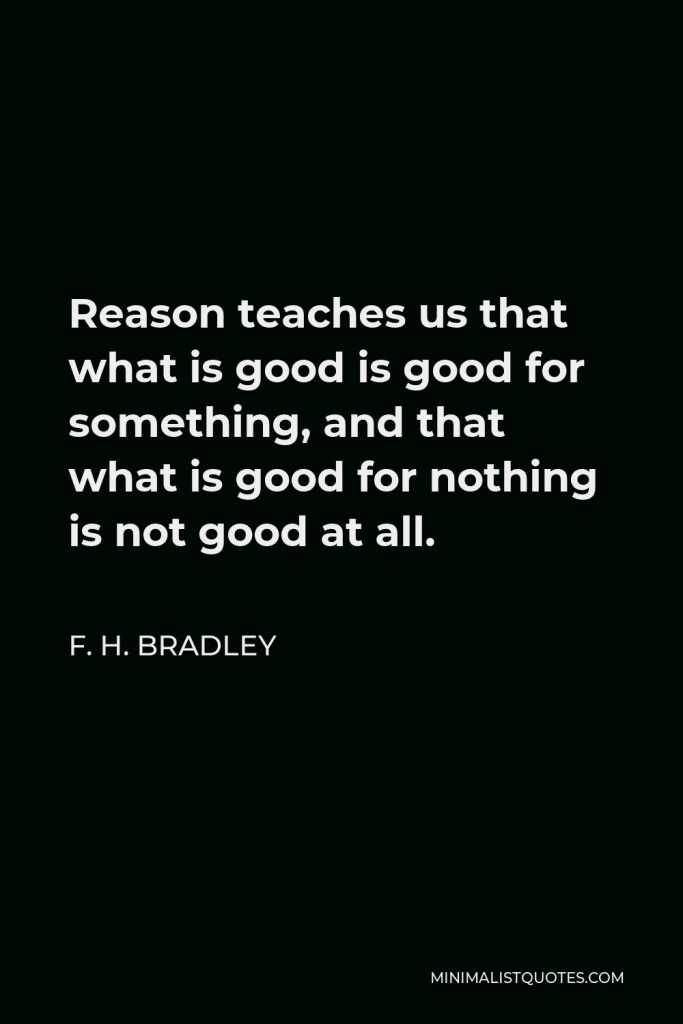

Reason teaches us that what is good is good for something, and that what is good for nothing is not good at all.
F. H. BRADLEY -





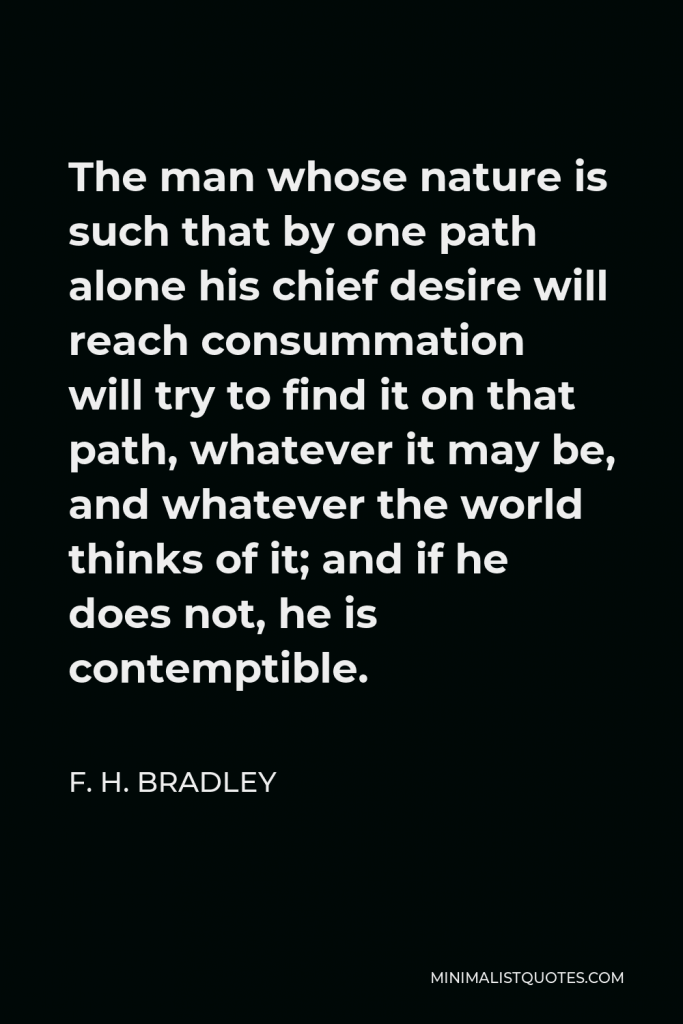

The man whose nature is such that by one path alone his chief desire will reach consummation will try to find it on that path, whatever it may be, and whatever the world thinks of it; and if he does not, he is contemptible.
F. H. BRADLEY -





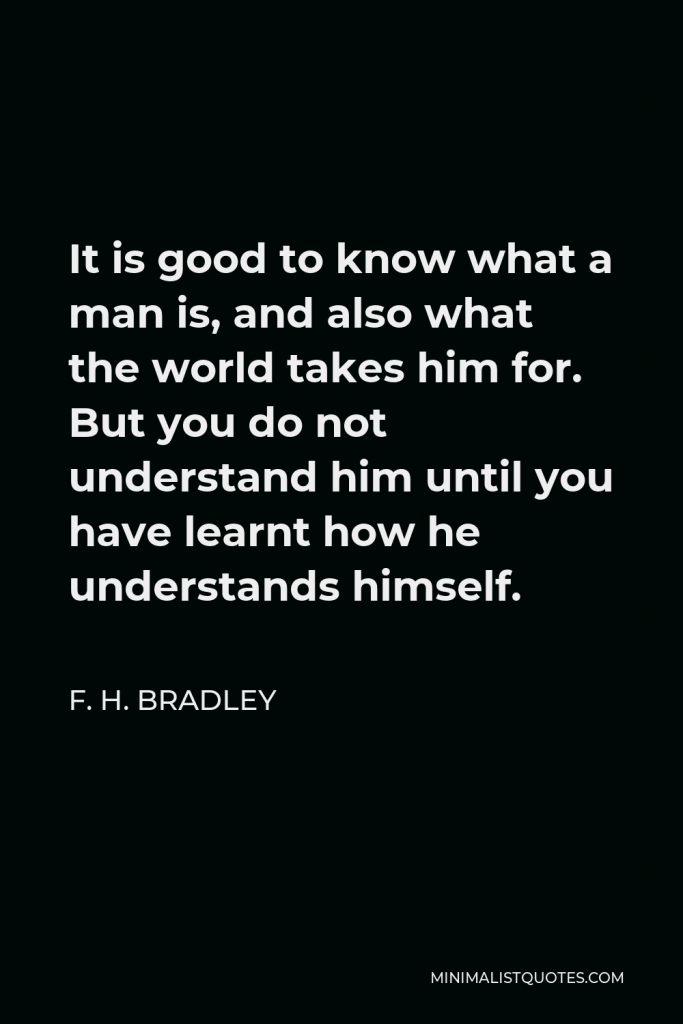

It is good to know what a man is, and also what the world takes him for. But you do not understand him until you have learnt how he understands himself.
F. H. BRADLEY -





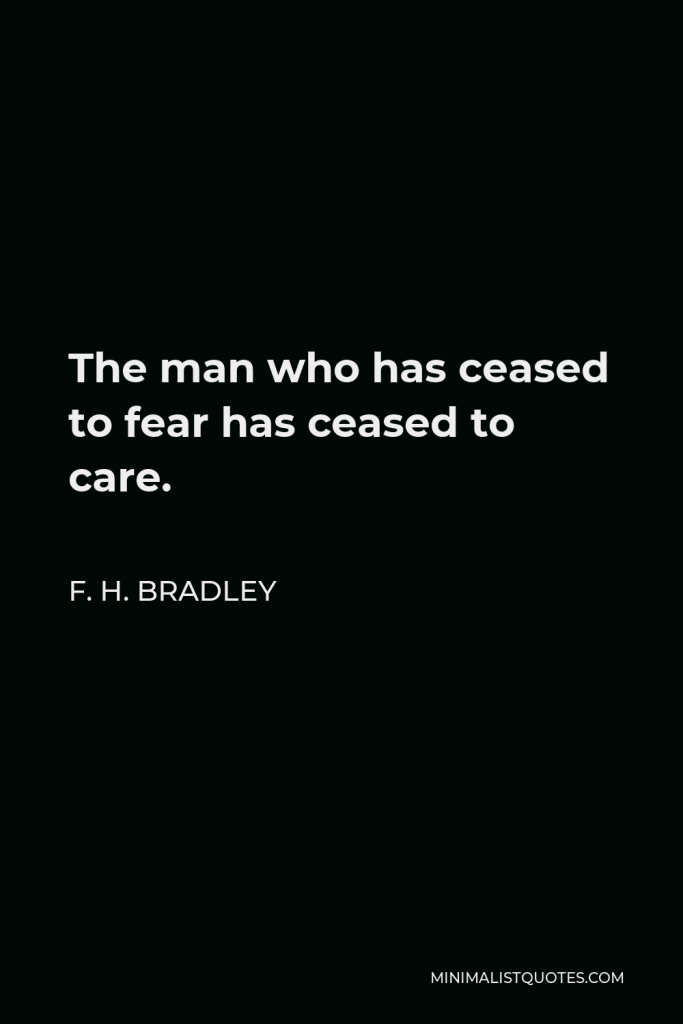

The man who has ceased to fear has ceased to care.
F. H. BRADLEY -





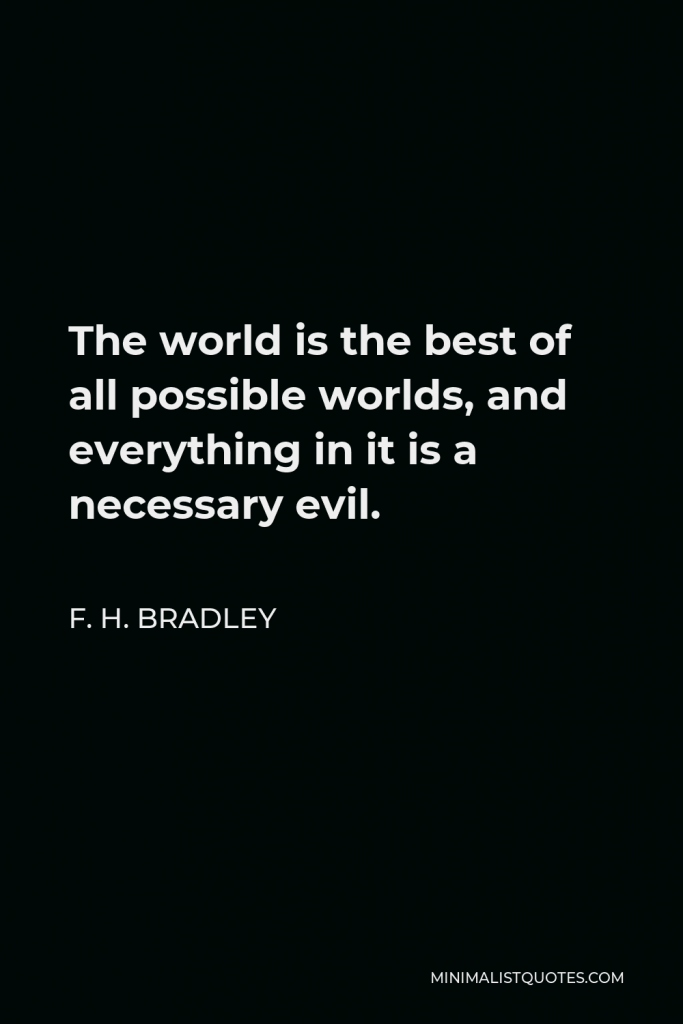

The world is the best of all possible worlds, and everything in it is a necessary evil.
F. H. BRADLEY -





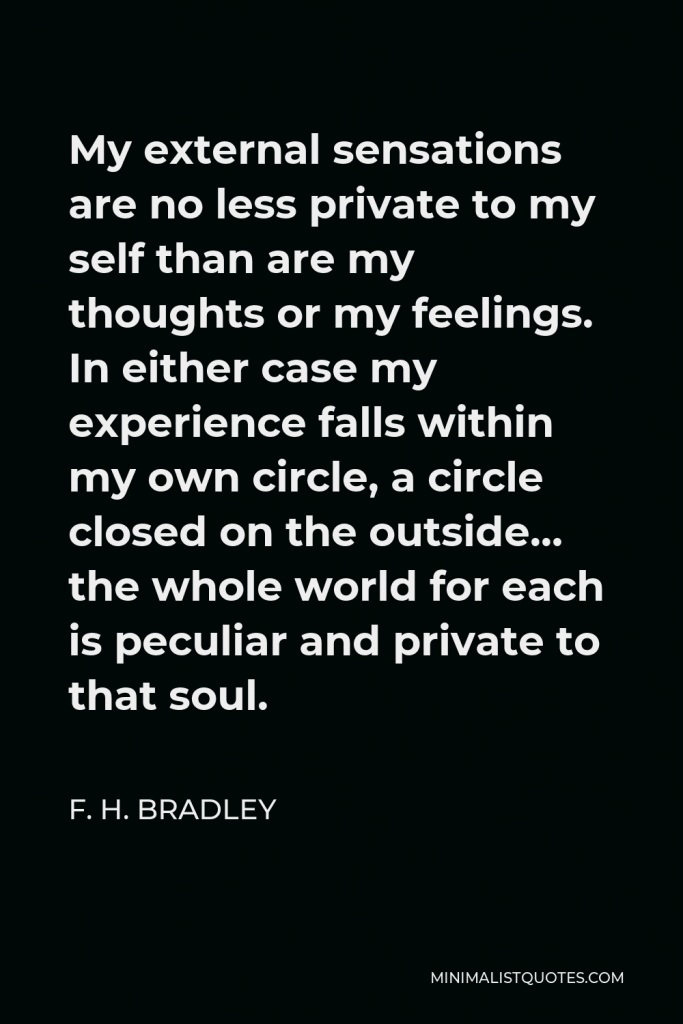

My external sensations are no less private to my self than are my thoughts or my feelings. In either case my experience falls within my own circle, a circle closed on the outside… the whole world for each is peculiar and private to that soul.
F. H. BRADLEY -







Adam knew Eve his wife and she conceived. It is a pity that this is still the only knowledge of their wives at which some men seem to arrive.
F. H. BRADLEY -





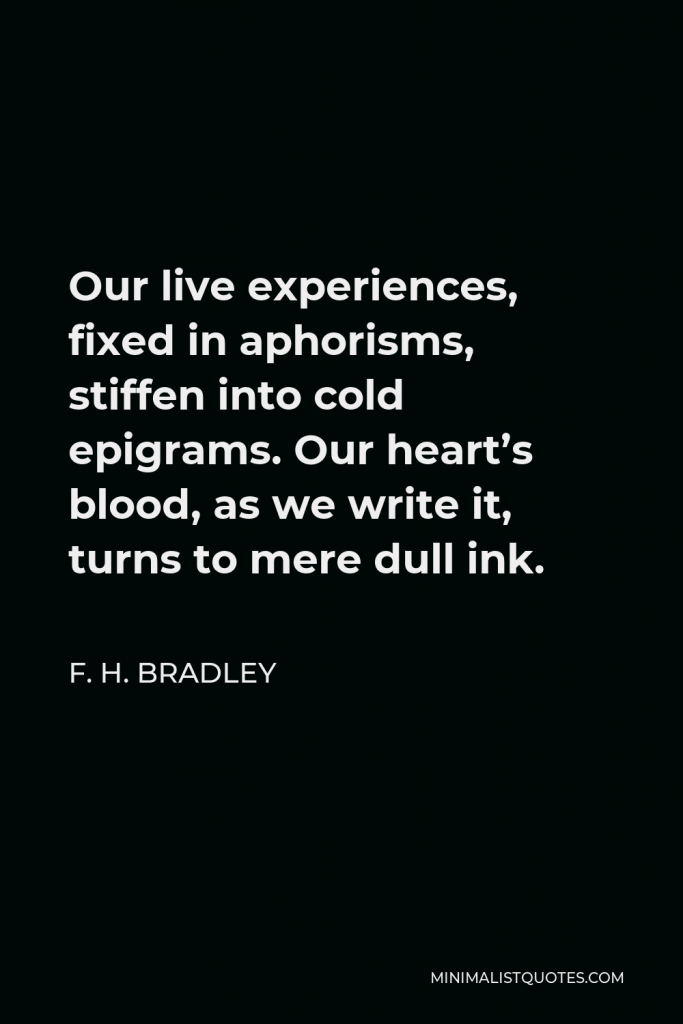

Our live experiences, fixed in aphorisms, stiffen into cold epigrams. Our heart’s blood, as we write it, turns to mere dull ink.
F. H. BRADLEY -





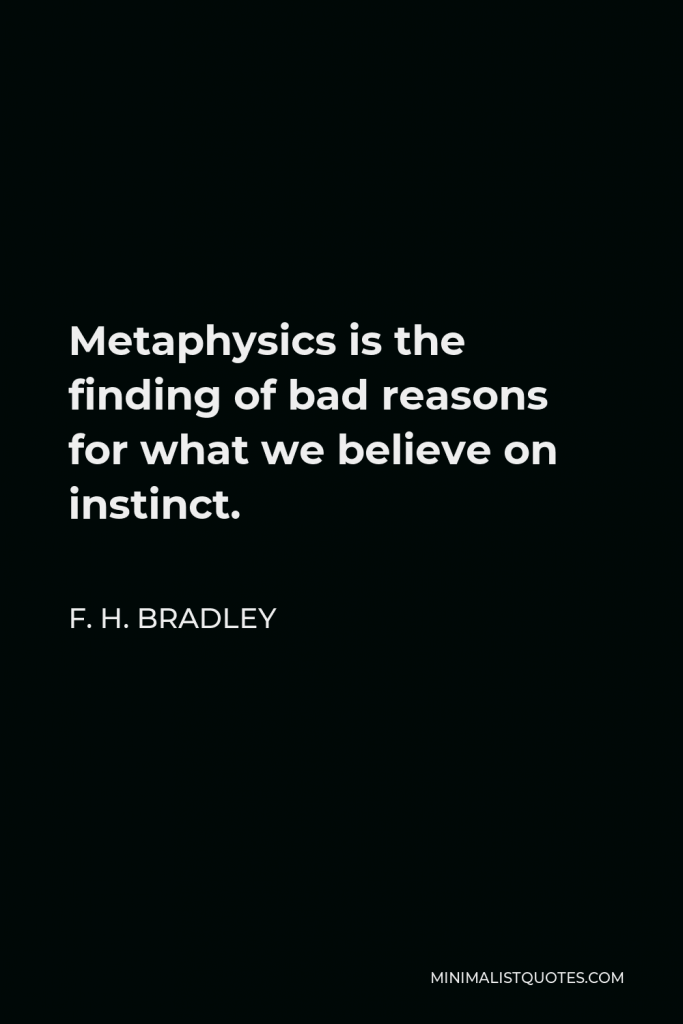

Metaphysics is the finding of bad reasons for what we believe on instinct.
F. H. BRADLEY -







I will begin with the self-styled “Christian” party, who profess to base their morality on the New Testament. But whether it is really more Christian to follow or to ignore the teachings of the Gospels I shall not discuss.
F. H. BRADLEY -







We say that a girl with her doll anticipates the mother. It is more true, perhaps, that most mothers are still but children with playthings.
F. H. BRADLEY -





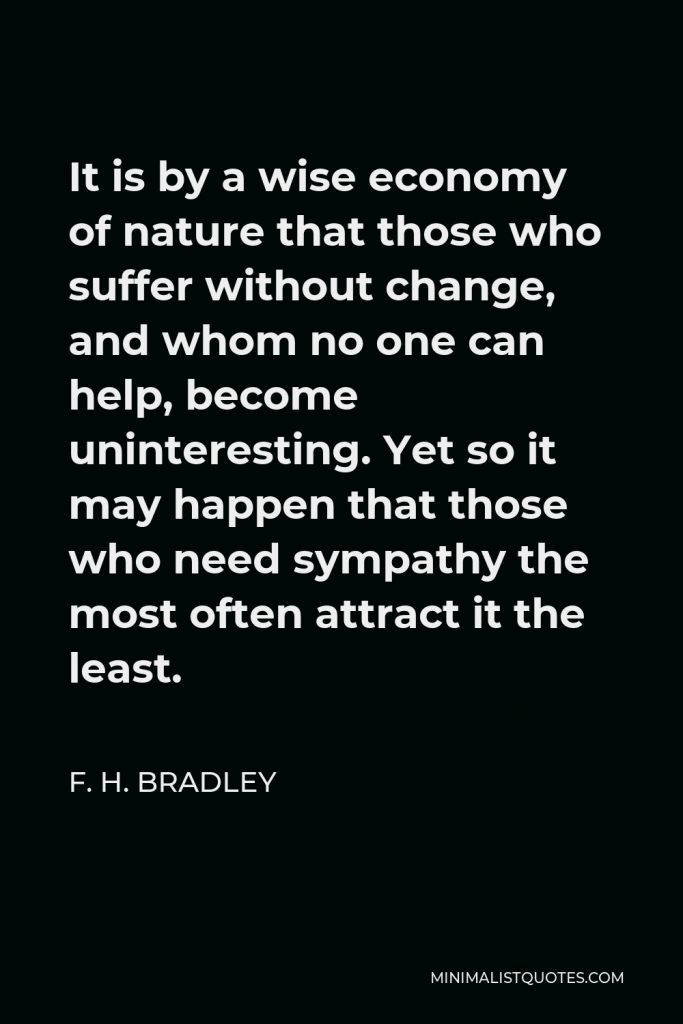

It is by a wise economy of nature that those who suffer without change, and whom no one can help, become uninteresting. Yet so it may happen that those who need sympathy the most often attract it the least.
F. H. BRADLEY -





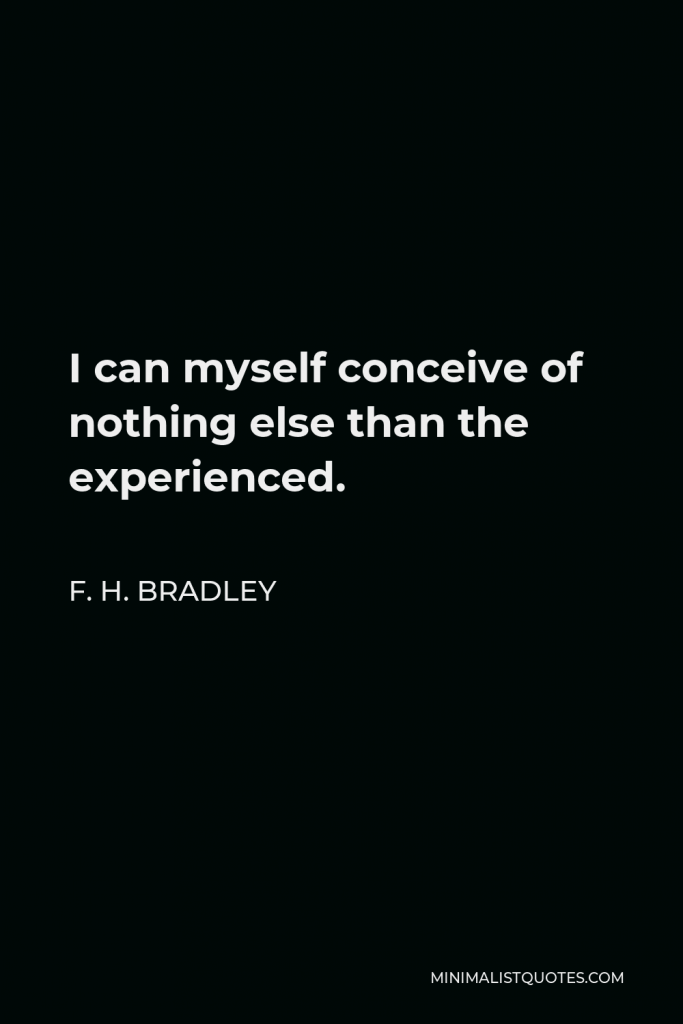

I can myself conceive of nothing else than the experienced.
F. H. BRADLEY







